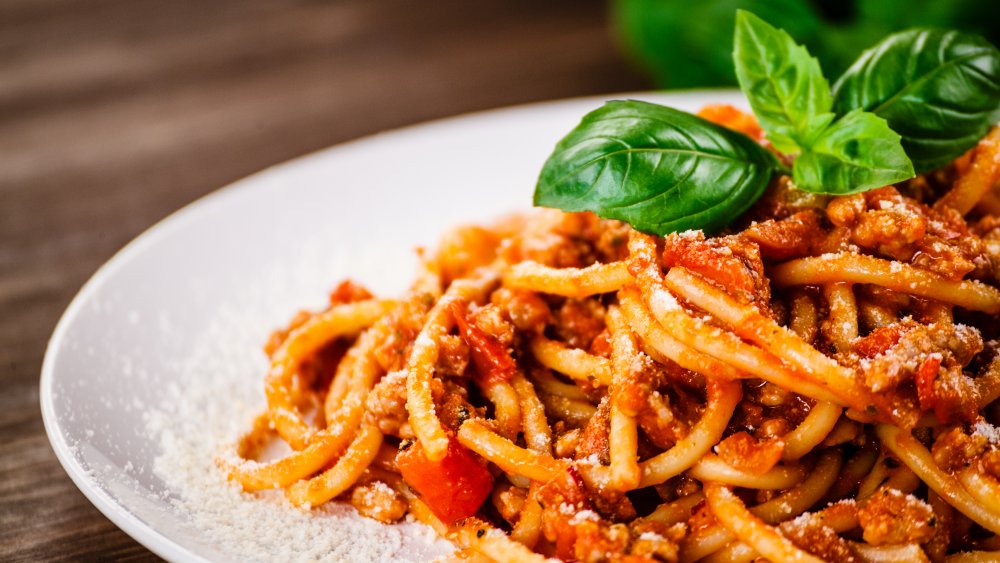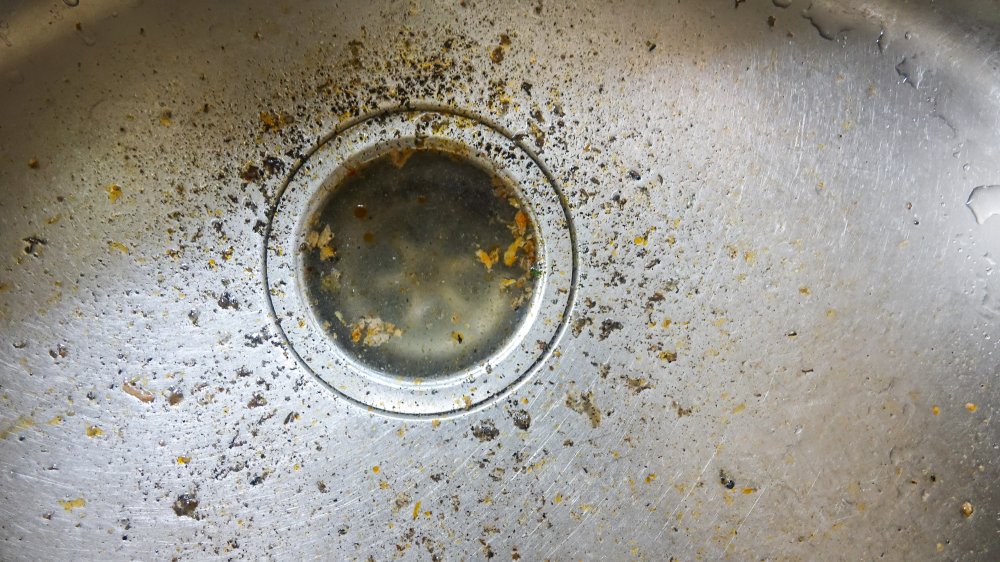You Should Stop Dumping Pasta Down The Garbage Disposal. Here's Why
Garbage disposals are unsung heroes of modern engineering. With the help of running water, they are able to make all the food bits left on your dishes, bowls, and silverware disappear. And while they can take plenty of abuse, there are a few things they aren't too happy about, including onion skins and eggshells – and any food waste that absorbs water, such as pasta.
Many of us always assumed that pasta can only cook and expand when it comes in contact with boiling water, but science shows otherwise. Pasta doesn't need boiling water to rehydrate; in fact, it can happen in cold water (it just takes longer). In fact, Serious Eats recommends starting dry pasta in cold water, and then bringing it to a boil, as it will cook more quickly. And, if pasta can absorb water at any temperature, that means dumping it down your garbage disposal is a bad idea. It can wind up tangled in the blades of your disposal (via Hunker), or it can be ground up into a mash that gets caught in the appliance's trap (via Grow With Us 2). Then, as you use your sink, the pasta that's still hanging around can take on even more water and become a starchy, glue-y mess that clogs your drain.
This is why it's always best to toss leftover pasta in your kitchen trash can. But what if you've already put one too many rigatoni dishes down the disposal?
Try these fixes for a pasta clog
Hunker says it is possible to try a few things to unclog a pasta block without calling a plumber. You can turn on the hot water and let that run for several minutes. Then, pour a mixture made of 1 to 2 gallons of boiling water and 1/4 cup of detergent slowly down the drain, before adding more hot water to finish the job. Once it starts draining freely and quickly, you'll know the mixture has worked.
If the clog hasn't shifted, pour a half cup of baking soda down the drain and follow with a half-cup of vinegar — then immediately cover the drain with a sink stopper. Baking soda and vinegar combine to become carbonic acid, and you do not want it splashing in your face. Then, run hot water again to see if the clog has shifted. If this mixture still isn't strong enough, you can try a commercial drain cleaner, just follow the instructions closely, as they contain harsh chemicals that you do no want to come into contact with your skin (via Grow With Us 2).
Still not working? It may be time to call a plumber before things get even worse.

